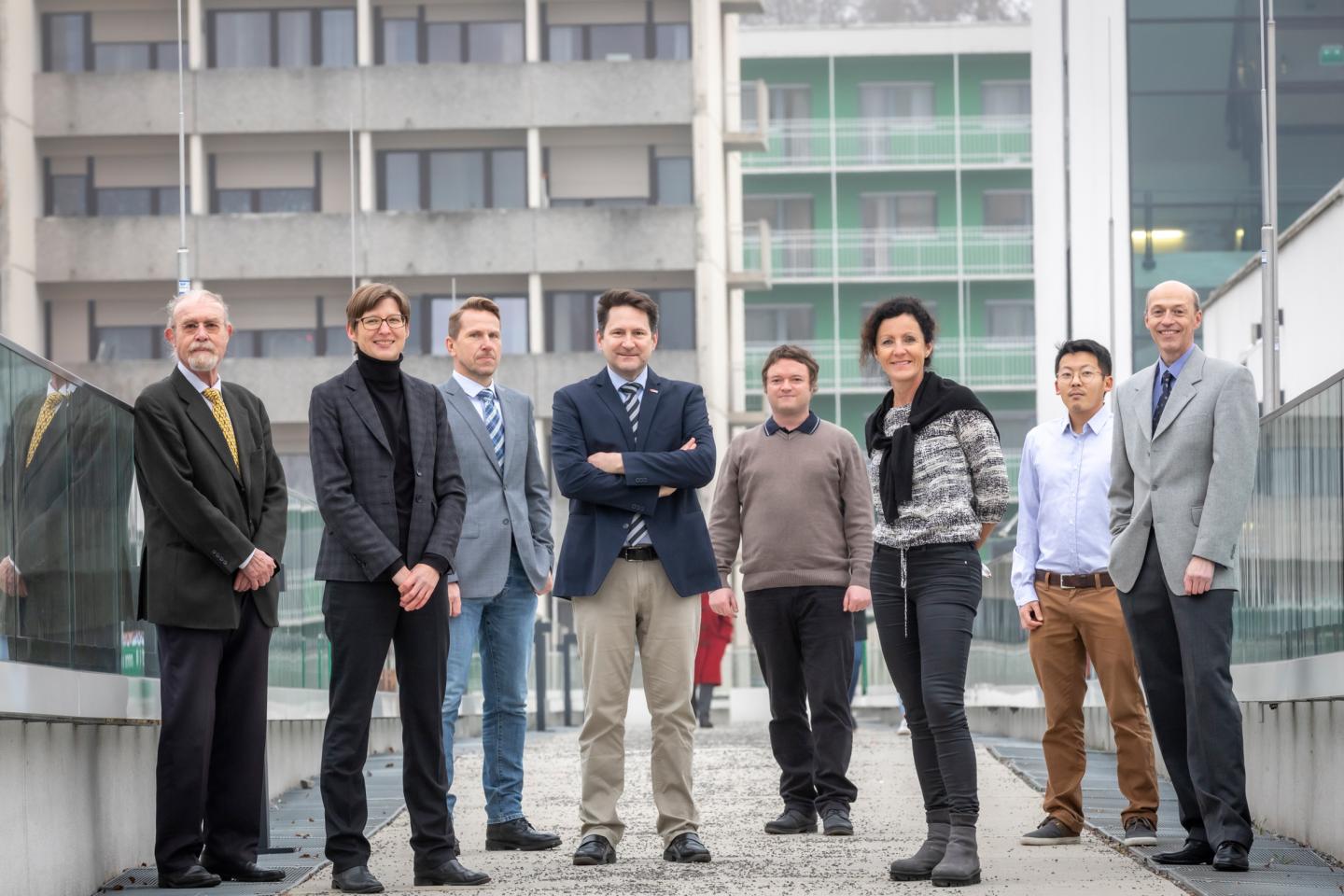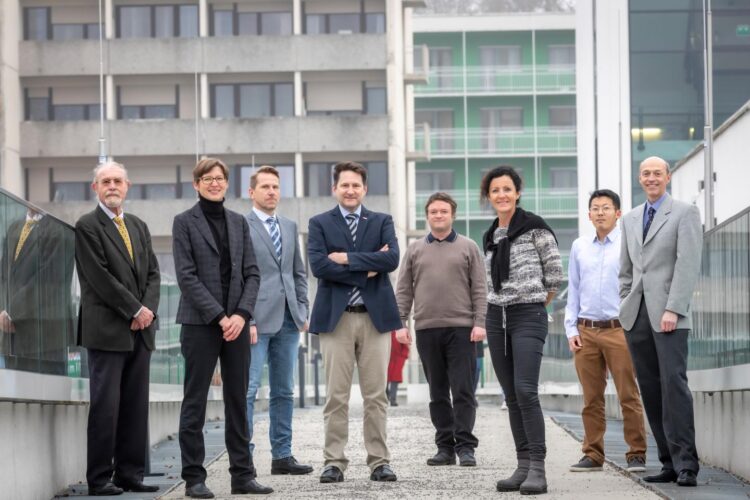
Credit: © Lunghammer – TU Graz
Can this digital medium make predictions about the individual information needs of users, recognize their cognitive abilities, and use this data to convey high-quality medical content in a comprehensible and clear manner? If Tobias Schreck, head of the Institute of Computer Graphics and Knowledge Visualisation at Graz University of Technology, has his way, such a system will be a reality in four and a half years at the latest. At least, that is the schedule of the research group that Schreck initiated together with Andrea Siebenhofer-Kroitzsch, head of the Institute of General Medicine and Evidence-Based Health Services Research at the Medical University of Graz, and Dietrich Albert, head of the Cognitive Science Section at the Institute of Psychology at the University of Graz. Funded by the Austrian Science Fund FWF, the scientific teams of the three institutes are working across disciplines to implement an interactive and adaptive health information system.
Goals, challenges and benefits
“Existing health information systems predominantly provide the same content to users in terms of presentation and depth of information. In addition, the sources of many web-based health portals are often not clear and quality assured. We want to raise what we offer here to a new level, inform people about health aspects in the best possible way and ultimately ,also improve doctor-patient communication,” says Schreck, naming the goals.
“Of course, the individual situation, the individual’s prior knowledge – whether correct or incorrect – and his or her very specific need for information, as well as his or her personal goals, must be taken into account. And this considers so-called cognitive biases: when information is incorrectly perceived, interpreted, remembered or judged,” adds psychologist Dietrich Albert.
Research partner and physician Andrea Siebenhofer-Kroitzsch adds: “With this new information system, we want to significantly improve a person’s ability to acquire knowledge on their own and thus make decisions that are beneficial to their own health. This is particularly necessary in Austria, where barely 30% of the population have good health literacy.”
Use-case diabetes
The researchers are focusing their work on diabetes. On the one hand, the metabolic disease is an important focus of evidence-based medical research at Med Uni Graz. Diabetes is complex, the disease changes over time, and those affected have a constant need for information. Second, improving information in this area has a major impact because diabetes is widespread. According to the International Diabetes Federation’s IDF Diabetes Atlas 2019, there are currently about 460 million adults with diabetes worldwide.
Three special features as a unique selling proposition
The project is distinguished from all previously existing systems by three key features. First, through automated detection of user interest, which will be enabled using machine learning techniques and analysis of interactions with the information system, including indirect methods such as eye tracking. Secondly, the unique multidimensional adaptability of the system, which is based on findings from cognitive psychology and is geared to a whole range of criteria such as age, treatment phase, individual cognitive characteristics, and the acute information needs of users – for example, not everyone wants to know about the prognosis or its implications in the same way. And third, the new system will provide evidence- and medicine-based foundations in a variety of forms – from textual information, to simple diagrammatic representations, and more complex visualizations for people who want to delve deeper into the topic. In addition to that, they want to build a knowledge base that provides answers to the question of how to present complex health information in a clear way.
The roadmap to the new health portal
The multi-university research team is now designing models based on requirements and state-of-the-art analyses as a first step. After only twelve months, software demos should be available, which will be iteratively evaluated and further developed together with doctors and patients. These efforts are then expected to result in a fully automated, interactive and adaptive web-based system in 2025. Schreck sees further potential applications in touch displays for doctors’ surgeries and in smartphone apps.
The work of the research group Human-Centered Interactive Adaptive Visual Approaches in High-Quality Health Information is funded by the Austrian Science Fund FWF via the “Research Groups” funding programme. This research is anchored in the Field of Expertise “Information, Communication & Computing”, one of the five research foci of Graz University of Technology. Interdisciplinary exchanges also take place via BioTechMed-Graz, a research cooperation between Med Uni Graz, TU Graz and Uni Graz universities at the interface of biomedical basics, technological developments and medical applications with the aim of joint research in health.
###
Media Contact
Tobias Schreck
[email protected]
Original Source
https:/





